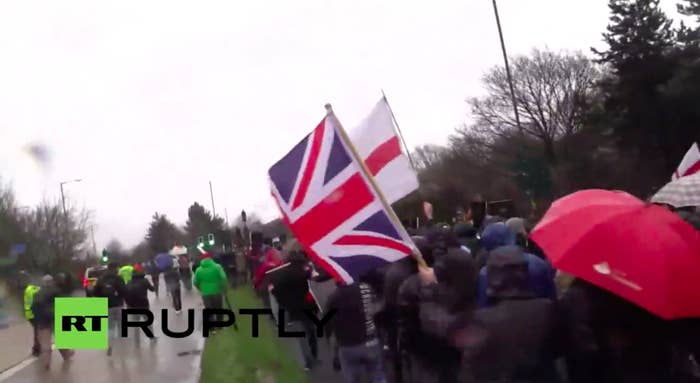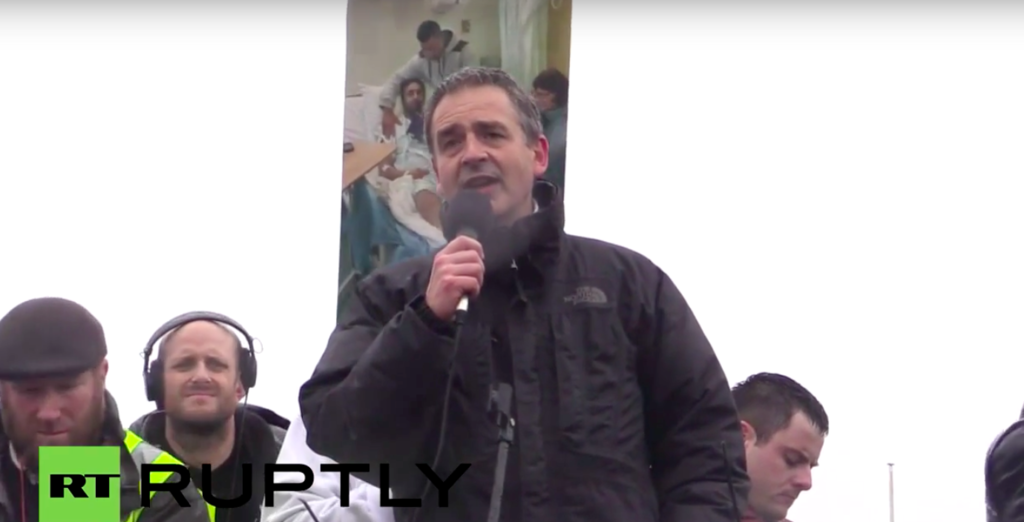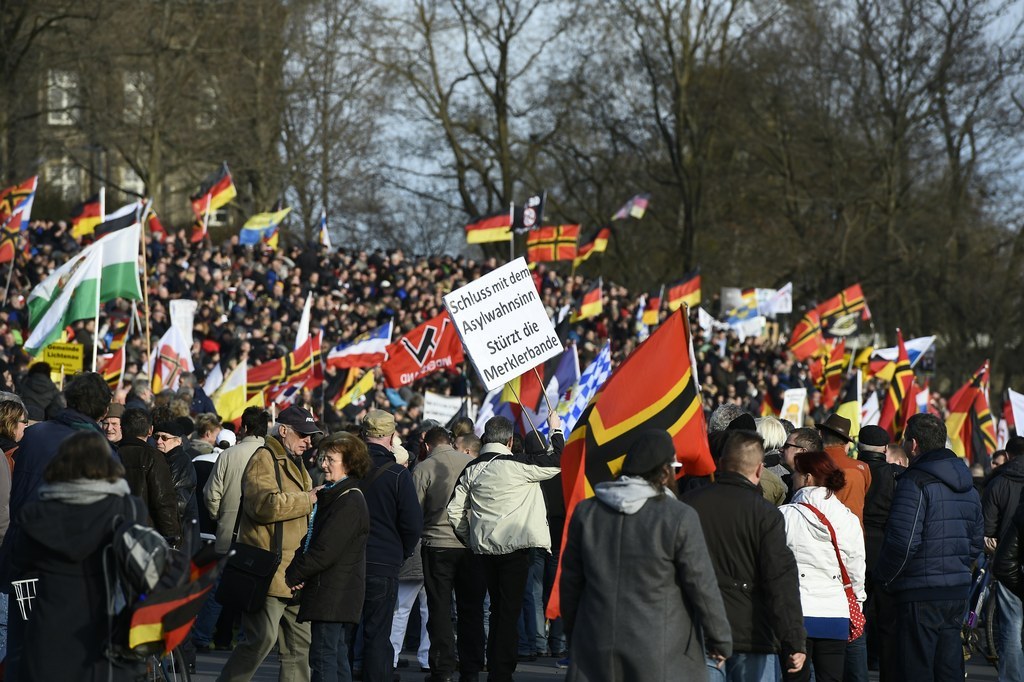One man has been arrested following the first protest held by the re-launched "Anti-Islamism" group Pegida UK in Birmingham.

The 39-year-old was arrested for a public order-related matter while attending a counter-demonstration, police said.
West Midlands police estimated that around 200 people attended the Pegida UK rally – the group's first demonstration of the year. At a previous rally organised by Pegida in Newcastle last year, around 2,000 people were said to have attended.
Pegida rally of about 2-300 supporters marching silently in the rain through a Birmingham industrial estate
A smaller group of counter-demonstrators were also present at today's protest, which included the anti-racist campaign group Unite Against Fascism.
The police said that they had been preparing for the march "for months" and had dispatched a large number of officers, including those in riot gear.
"We had a large police presence on the ground, including protest liaison officers, in order to deal effectively with any issues. But we were confident the rally would be peaceful: our negotiations with Pegida representatives were positive and they stressed their intentions to express their views lawfully," a spokesperson from West Midlands police said.
The march ended with speeches from Pegida UK's new leader, Paul Weston, and its founder, the former English Defence League leader Tommy Robinson.

The march was one of a number of Pegida rallies across Europe, including Germany, France, Poland and the Czech Republic. The German march, which took place in Dresden, has attracted more than 10,000 supporters.

Pegida, which is German for "Patriotic Europeans Against the Islamisation of the Occident" was founded in Dresden in October 2014. Though the group claims to only be against militant Islam, its critics say it also has strong racist elements, and has contributed significantly to the rise of anti-refugeee sentiment across Europe.
